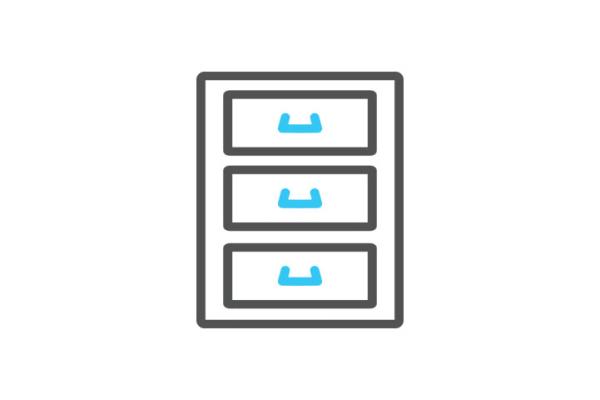Infectious diseases can spread rapidly if action is not taken in time. In the event of a cross-border outbreak, the response must be quick, targeted and coordinated. Similarly, chemical threats or environmental disasters (e.g., volcanic eruptions) can quickly go beyond the borders of a single country or can overpower national capacities for response.
The EU’s role in managing health crises is to ensure the coordination of the response. The specific public health measures remain the responsibility of national governments, considering factors such as the national epidemiological situation, social structure and national health system capacity.
The Commission works closely with all EU countries through the Health Security Committee to ensure their coherent and well-coordinated response. The Commission can also mobilise EU-level instruments of direct support to Member States, such as joint procurement.
The most recent COVID-19 pandemic is a major health crisis requiring extensive coordinated action at EU level. A previous example of EU coordination in action is the Ebola outbreak in West Africa.
Recognition of a public health emergency at EU level
In cases of a serious cross-border threat that endangers public health in the European Union (including pandemic situations), the European Commission may recognise a public health emergency at the Union level.
Before the recognition, the Commission will consider any expert opinion of the ECDC, any other relevant Union agency or body, or the Advisory Committee established under Regulation (EU) 2022/2371.
The recognition of a public health emergency at the Union level can trigger the introduction of the following measures:
- measures related to medicinal products and medical devices based on the Regulation on the reinforced role of EMA (Regulation (EU) 2022/123)
- mechanisms to monitor shortages of and to develop, procure, manage and deploy medical countermeasures
- activation of support from the ECDC to mobilise and deploy the EU Health Task force
- activation of the EU Integrated Political Crisis Response Arrangements (IPCR).
Before the recognition, the Commission will also liaise with the World Health Organization (WHO) to share its analysis of the outbreak and to inform about the planned recognition of public health emergencies at Union level.
Health Security Committee
EU's rapid response to serious cross-border threats to health is coordinated by the EU Health Security Committee (HSC). It is a key forum for the exchange of information on specific measures adopted by each country and, together with the European Commission, defines the actions to follow on preparedness, planning, risk and crisis communication and response.
The HSC meets regularly, when the situation requires and upon request of the European Commission or an EU country. It is chaired by the Commission. The HSC has had weekly meetings during the peaks of the COVID-19 pandemic.
The HSC is set up at a senior level and working group level. It comprises representatives of EU countries’ health authorities with EEA countries, candidate and potential candidate countries participating as observers.
Specifically for HSC meetings on COVID-19, non-EU countries such as Western Balkan countries and Ukraine were regularly invited to participate as observers to strengthen cooperation.
Whenever an EU country intends to adopt public health measures to combat a serious cross-border threat, it must inform other EU countries and the European Commission of their nature, purpose and scope before adoption unless the need to protect public health makes immediate adoption necessary.
Regulation (EU) 2022/2371 further strengthened the role of the HSC by empowering it to adopt:
- opinions and guidance, including on specific response measures, to allow for the better coordination of EU response to health emergencies.
- communications and recommendations on surveillance addressed to the Member States, the ECDC and the Commission.
Representatives from national health services consult within the HSC in liaison with the European Commission to coordinate
- national responses to the serious cross-border threat to health, including prevention, preparedness and response planning
- risk and crisis communication to the public and healthcare professionals, which can be adapted to national needs and specificities
- the adoption of opinions and guidance, including on specific response measures
- support for the EU Integrated Political Crisis Response Arrangements
In the event of a serious cross-border threat to health overwhelming national response capacities, an affected EU country may also request assistance from other EU countries through the Union Civil Protection Mechanism.
More information:
- Meetings of the Health Security Committee
- Rules of procedure
- List of authorities represented in the Health Security Committee
Risk and crisis communication
Clear and effective information and communication to the public and health professionals are essential parts of crisis responses at national level.
The EU supports Member States' risk communication during outbreaks but does not impose harmonised messages. Instead, the Commission’s role is to ensure coordination across Member States so that communication to the public and healthcare professionals is coherent and consistent.
Technical working group on COVID-19 diagnostic tests
In the context of the COVID-19 pandemic, the Health Security Committee established in May 2021 a Technical working group on COVID-19 diagnostic tests, bringing together experts from the 27 EU countries and Norway, as well as representatives from the Directorate-General for Health and Food Safety, the Joint Research Centre and the ECDC.
The technical working group reviews the proposals by EU countries and manufacturers for devices to be included in the EU common list of COVID-19 antigen tests. All the antigen tests included in the EU common list are eligible for the issuance of EU Digital COVID Certificates.
More information on the technical working group and its activities.





